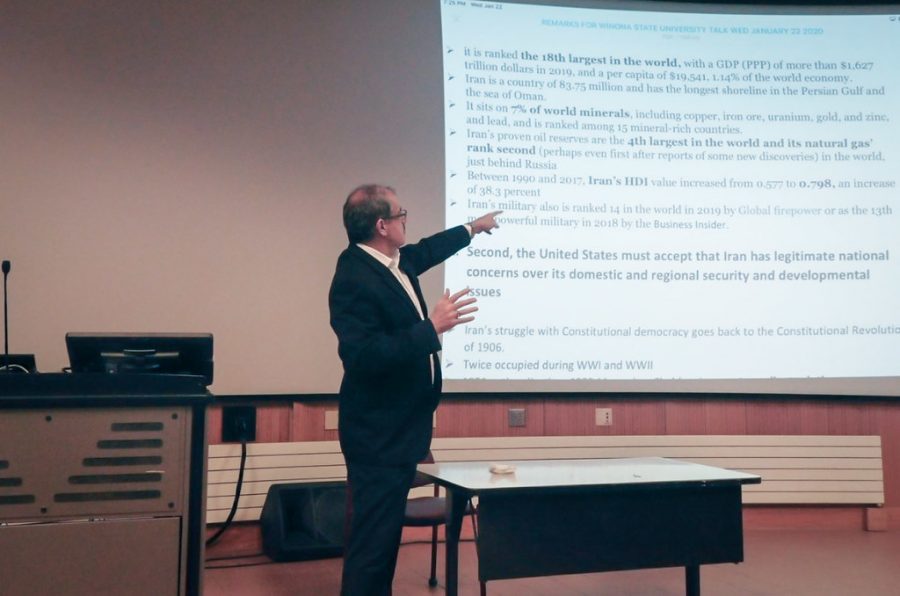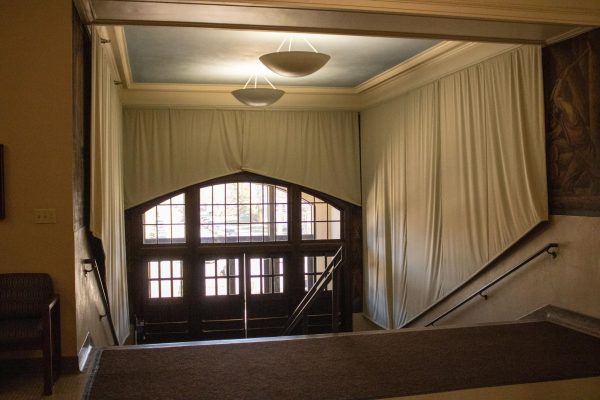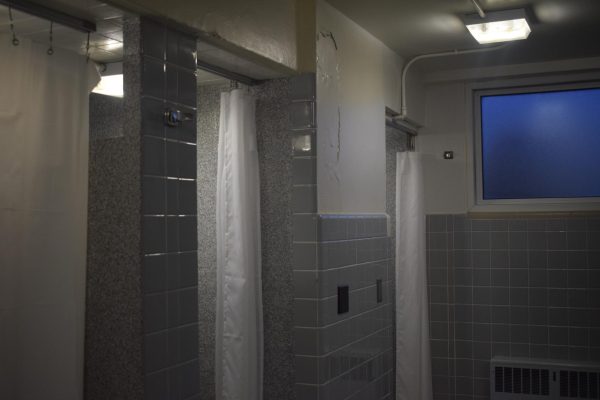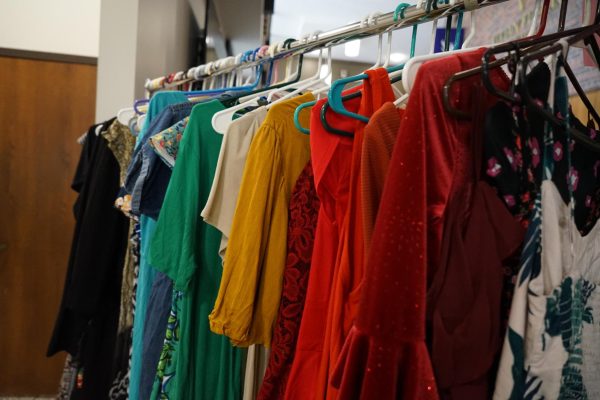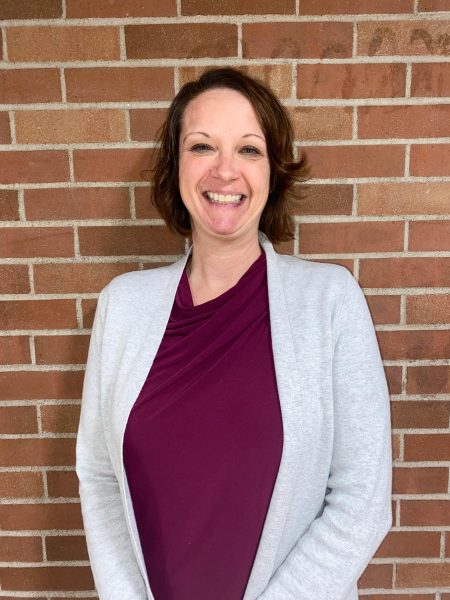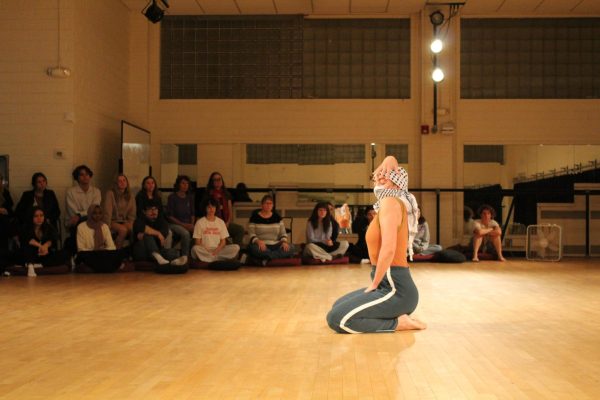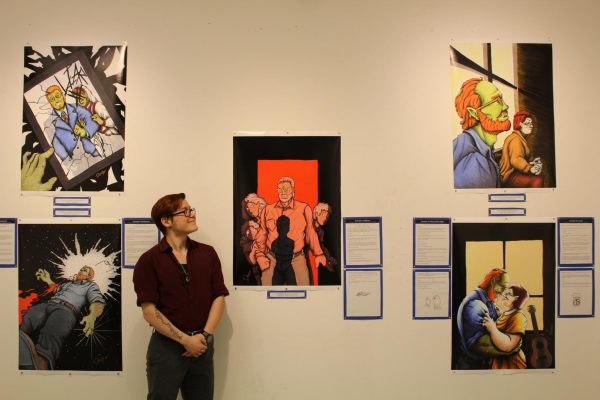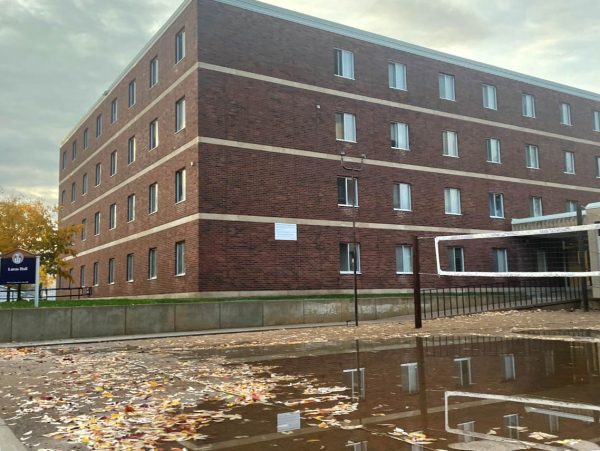UW Eau Claire professor discusses peace with Iran
Ali Abootelab Professor at UW-Eau Claire led a talk entitled “Is Peace Still Possible Between the United States and Iran” at Stark Hall on Wednesday, January 22.
January 29, 2020
Winona State University welcomed a University of Eau Claire-Wisconsin professor to campus for a public discussion on Iran and United States relations this past Wednesday.
Professor Ali Abootelabi, a political science professor at UW-Eau Claire, was invited to host a discussion on Wednesday, Jan. 24 from 7 to 8 p.m. in Stark Hall titled “Is Peace Still Possible Between the United States and Iran?”
Introduced by Winona State’s global studies chairperson, Dr. Yogesh Grover, Abootelabi presented statistical information as well as personal opinion and expertise during the discussion.
“I was born in Iran, but I have been in this country for so many years,” Abootelabi said. “And this is the thing about the US-Iran relationship: We talk past each other, not to each other.”
The idea to set up the discussion on campus was pitched by Dwayne Voegeli, a social studies teacher at Winona Senior High School.
Voegeli was motivated by his own students’ questions and interest in the subject and reached out to university faculty about setting up the event.
Grover, alongside other faculty members, supported Voeglie in that motivation, sharing that the event was fueled by a mutual ambition to generate awareness on the issue.
The discussion led by Abootelabi was put together relatively fast, following heightened political tensions over the last few weeks.
Tensions rose and snapped following the death of Qasam Soleimani, Iran’s major general and one of its most prominent figures.
Soleimani was killed by a U.S. air strike in Iran’s capital, Baghdad, at Baghdad International Airport on Jan. 3.
Iran retaliated with a missile attack on American bases in Iraq Jan. 8.
There have since been no major events between the countries.
Abootelabi guided discussion by speaking about background information on Iran and common mischaracterizations made about the country and its people.
“A lot of the problems that we have, from my perspective, are solvable,” Abootelabi said. “There are common interests that we can come together on.”
He dismissed the common notion that Iran is a religious dictatorship, stating that their political system is unique and has exponentially grown alongside Iran’s social and economic growth.
Abootelabi shared that Iran’s Human Development Index (HDI) rose nearly 40 percent between 1990 and 2017, a clear indicator of their all-around growth.
Iran also sits on 7 percent of the world’s minerals, like gold and uranium, as well as contains the fourth-largest oil reserves and a population of over 83 million.
Abootelabi shared these statistics and others to support his thought that one of the main ways U.S.-Iran relations could be eased is by recognizing Iran as a worthy, pivotal state.
“My point tonight is that if you dismiss Iran as a simple dictatorship, you’re missing the boat,” Abootelabi said.
He also explained that the upcoming year will be very important, for both the U.S. and Iran, as primary and parliamentary elections approach.
Iranian parliamentary elections are in February and have an average voter turnout of 66-67 percent he said, which is higher than in the United States.
For comparison, the United States’ voter turnout in the 2018 midterm elections was 53 percent– the highest midterm voter turnout since 1914, according to the United States Census Bureau.
Political shifts in each country in the upcoming year could drastically change U.S.-Iran relations.
“I’m not trying to say Iran’s performance is so rosy,” Abootelabi said. “[but] when you look at the quality of growth, I think Iran has come a long way.”
Abootelabi’s second major point on how U.S.-Iran relations could be eased was that the United States needs to accept that Iran has legitimate national concerns over its security and developmental issues.
This reasoning tied heavily into the recent U.S.-Iran conflict as well as issues dating back to WWI and WWII.
Another point he shared was that ‘War on Terrorism’ has not been a strategy, but a declared mantra adopted by the United States, and this is another issue that has stoked the fire.
The discussion, scheduled to occur from 7 to 8 p.m., continued nearly 45 minutes afterwards as Abootelabi opened up a Q&A to end the night.
Several community members steered much of the Q&A towards topics like Iran’s socioeconomic growth, oil reserves and its military.
“I think it’s very important that we know not only what is happening in the world,” Grover said. “But what the United States’ government is doing, because these can become major issues.”
Grover said that he believes everyone, especially students, should be “in-the-know” on topics like this when there is potential for war.
*All opinions expressed are of the Winonan staff. They do not necessarily reflect those of the college, university, system, or student body.*























































